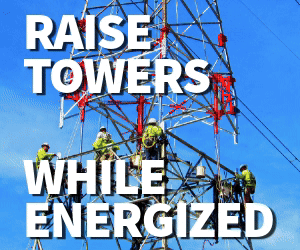The nation's nuclear energy industry strongly benefits U.S. national security, energy security and international trade, a gathering of current and retired admirals of the U.S. Navy affirmed this week.
Speaking at a symposium at the Center for Strategic and International Studies (CSIS) on Oct. 2, former Vice Chairman of the Joint Chiefs of Staff Adm. James Winnefeld Jr. said the nuclear navy relies on the industrial capabilities of the commercial nuclear industry.
"Not that the Navy reactors' program is responsible, or has ever felt it is responsible, for advocating for the civilian nuclear power industry, but we rely on the same industrial base," Winnefeld said. "So it's very important that that tie is intact and it's strong and that we keep this industrial base powerful."
Adm. James Caldwell Jr., deputy administrator for the Office of Naval Reactors at the National Nuclear Security Administration, said that keeping a vibrant commercial nuclear industry would help spark innovation and maintain affordability for military applications.
"What helps the commercial [nuclear] industry helps the Navy nuclear propulsion industry," Caldwell said. "More vendors mean more affordability. It also means the ability to have some innovation that might help us out."
At the end of 2017, the U.S. Navy had 75 nuclear-powered submarines and 11 nuclear-powered aircraft carriers in operation. Several national security organizations, including the Navy, benefit from a strong commercial nuclear sector many of the companies that serve the nuclear industry also supply the nuclear navy.
Nuclear power plants are also the backbone of a resilient, reliable and low-carbon grid, boosting energy security at home. William Ostendorff, former commissioner at the U.S. Nuclear Regulatory Commission, sounded a warning about the fundamental role that the nation's 98 nuclear power plants must continue to play in maintaining the reliability and integrity of the electric grid.
"Are there national security consequences to a declining nuclear industry? Absolutely," Ostendorff said. "A prerequisite for national security is energy security. Nuclear energy provides carbon-free, reliable, baseload generation. At some point, the continued nuclear industry decline we're experiencing today becomes irreversible. It is naive to think we can revive the nuclear industry at some future point if it remains dormant for just one generation."
A strong civilian nuclear industry also helps create deep and long-lasting relationships between the U.S. and other nations through commercial nuclear trade deals which help boost America's nonproliferation, safety and cybersecurity goals around the world. In our absence, Ostendorff warned, others without those same standards are more than willing to step forward.
"Who fills that void if the U.S. is not there? The answer is not surprising," Ostendorff said. "Russia currently dominates the export market for nuclear fuel and reactor technology."
On a more optimistic note, the former commissioner pointed to policy solutions that are being implemented to preserve the domestic nuclear industry and stem further premature plant closures. He called for continued reform in electricity markets, pointing out recent successes in New York, Illinois and New Jersey, which have initiated zero-emission credit programs to fairly compensate zero-carbon energy sources including nuclear.
Ostendorff also noted that Congress has recently introduced the Nuclear Energy Leadership Act, a bill designed to help America recapture its lead in nuclear energy technology in the face of increasing global competition. He was optimistic about the prospect for small modular reactors (SMRs) and proposed that the federal government could help kick start their deployment by "ordering a book of 10 SMRs" or "at a minimum" guaranteeing power purchase agreements for 10 SMRs, once in operation.
Earlier this year, a group of 77 national security leaders wrote to Energy Secretary Rick Perry urging him to continue to ensure that nuclear energy's national security attributes are properly recognized by policymakers and valued in electricity markets. The letter explains the essential and unique national security benefits of preserving the U.S. fleet of nuclear plants, and of having a strong and growing civil nuclear industry in the United States.
Click here to read the full story.
The CSIS event and letter to Perry follow other recent events detailing why a strong, vibrant nuclear industry is vital to U.S. national security.

















